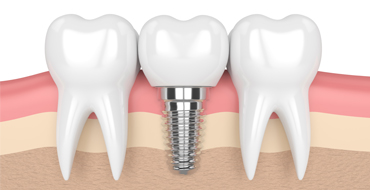Why Consider Dental Implant Surgery?
Ideal Candidates for Dental Implants
Dental implants are an excellent option for most people, but there are certain criteria that determine if you're a good candidate:
- You should be in good general health.
- You must have sufficient bone mass in your jaw to support the implants or be willing to undergo bone grafting if needed.
- You should have healthy gums free from periodontal disease.
Common Reasons for Dental Implant Surgery
Dental implants are commonly needed for:
- Replacing missing teeth: Whether due to decay, injury, or other reasons.
- Improving speech or chewing: If you have missing teeth, implants can restore normal function.
- Restoring self-esteem: Implants offer a natural and confident smile.
The Dental Implant Procedure Explained
Initial Consultation and Assessment
Your journey begins with an initial consultation at Gentle Dental. Our expert periodontists will perform a thorough assessment of your oral health, take diagnostic images (such as X-rays or a CT scan), and discuss your treatment options. We will create a customized plan based on your needs.
Preparation for Surgery
Before the surgery, we will perform any necessary evaluations, such as bone density tests. If needed, we may suggest bone grafting to ensure a strong foundation for the implants.
Surgical Process
The dental implant surgery involves several key steps:
Bone Grafting (if necessary)
If you don’t have enough bone mass in your jaw, bone grafting may be required. This procedure adds bone material to your jaw to help support the implants.
Placing the Implant
The next step is placing the implant into your jawbone. This is done under local anesthesia to ensure comfort. The implant will fuse with the bone over the next few months in a process known as osseointegration.
Abutment Placement and Healing
Once the implant has fully integrated with the bone, an abutment is placed on top of the implant to support the crown or bridge. After abutment placement, you will need some time to heal before the final restoration is attached.
Post-Operative Care and Recovery
Recovery Timeline
After your surgery, you will go through a healing period that typically lasts a few months. During this time, the implant will fuse with the bone, ensuring a strong and permanent bond. Your periodontist will monitor your progress with follow-up visits.
Managing Discomfort and Pain
Post-surgery discomfort is minimal and can be managed with prescribed pain medications and over-the-counter pain relievers. We will provide detailed aftercare instructions to help reduce swelling and ensure proper healing.
Follow-Up Visits
Regular follow-up appointments are essential to monitor the healing process and ensure the implants are integrating well with your jawbone. These visits will also give us the opportunity to check for any potential complications early on.
Expected Outcomes and Results
Long-Term Success Rates
Dental implants have an impressive success rate of 95-98% when properly cared for. Factors like oral hygiene, bone density, and overall health can influence success, but with proper care, dental implants can last a lifetime.
Maintaining Your Dental Implants
To ensure the longevity of your dental implants, it’s essential to maintain a proper oral hygiene routine. Regular brushing, flossing, and professional cleanings will keep your implants healthy. Avoid smoking and excessive alcohol consumption, as they can impact the healing process.




